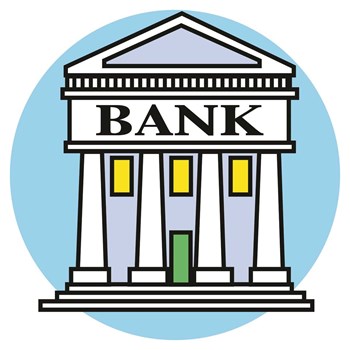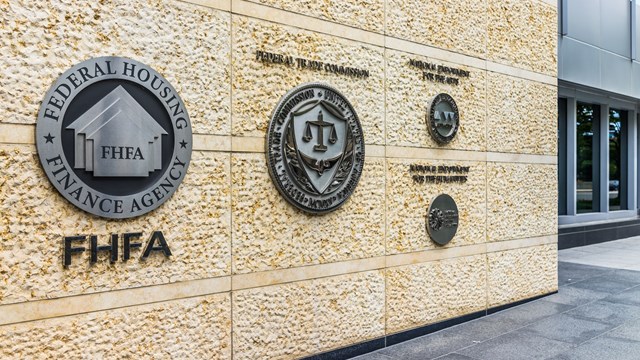
A lot of us feel like everyday life keeps getting more and more complicated, and finances are no exception. In Illinois, there are strict limitations to what boards can do with their association’s funds, but that doesn’t mean there aren’t plenty of options. Both smaller and large associations have their respective obstacles to overcome when it comes to managing money, whether it’s figuring out how to battle outstanding assessments, or knowing how to navigate the payment of a loan. The bottom line is that administrators need to have at least a passing familiarity with their community's banking practices, and know how to keep their operating funds both safe and accessible, while taking care of their reserve and operating funds.
Types of Accounts
As topics of conversation go, the finances of home associations are not very sexy. In fact, the bank statements of a condo or HOA building in Illinois is probably among the most conservative investment plans one can come across. “Most associations have an operating checking account, at least a reserve money market or savings account,” says Steve Silberman, CPA at Frost, Ruttenberg & Rothblatt PC, a certified public accounting firm in Deerfield. Other than a few other options that will be discussed later, that’s about it.
Maybe someone in your building is a master venture capitalist or investment banker, and brags about consistently getting those big returns without much risk. It’s especially enticing because interest rates remain in the basement, and those returns on bank statements will be next to nothing. But, most boards are hopefully well aware that they have very strict limitations on how they can investment collective funds of their associations. “The associations are required to invest any of the funds in low-risk ventures. So they can’t do things much riskier than, say, certificates of deposit, money market accounts. There are some that I’ve seen do a combination through an investment account with, say Charles Schwab, but they’re still in certificates of deposit, because they’re not allowed to risk the money of an association. It’s part of the Illinois Condominium Act,” says Marnie Gucciard, a senior managing consultant with McGovern & Greene LLP, a forensic accounting firm in Chicago.
The tight restrictions on investment opportunities for associations are there for good reason. “If you’re taking risk, and all of the sudden you lose money by putting it into mutual funds, you’re not doing your proper due diligence as a board member, and it’s possible you could get sued,” says Silberman.
The basic operating checking account is essentially what you pay your bills with on a monthly basis. “There are associations that maintain their own checking account for expenses. Others will have the property managers pay the expenses and bills,” says Gucciard. “I have seen where they can use a pay card, or credit card for the association to charge the expenses but I would advise against that. That’s because it compromises the level of control the association has over how their funds are spent. They should always be the signers on the account; not the property manager, in my opinion. I’m also a fraud manager, so I’m probably a little more conservative than other CPAs out there,” she says.
The second basic component of any association’s finances in the savings account for reserve funds. Here there are a few more options available. “They're really looking for FDIC-insured standard bank products—your more traditional accounts, which would be your CDs and money market accounts. Every bank, of course, offers those types of accounts. At any one point in time, you'll usually see banks running CD specials depending on term and dollar amount. Maybe an association board is able to capture a higher interest rate,” says Anthony Dister, vice president of Community Advantage in Chicago, a provider of financial services to condominium, townhouse and homeowner associations.
Other Operating Accounts
While often property management companies will utilize their own operating accounts for the associations they service, boards have more autonomy and potential shopping to do with reserve accounts. “There's other banks that have products that we've tailored to specifically community associations. In our case, we have our max-save reserve account, so it gives them the increased FDIC insurance of up to $3.75 million and it gives them 100% liquidity of funds, and it gives them a pretty good yield on their investment as well. The reason we created that product is they want to get a decent yield, maintain liquidity, and maintain FDIC insurance,” says Dister.
Silberman adds that the average bank account offers FDIC insurance up to $250,000, but there are others out there that can go up to $50 million if you’re working with enough capital, which is unlikely for an HOA.
Reserve funds that can restricted for capital items or other items that the board deems necessary usually fall an account to store extra money that is saved unexpectedly, which can later be moved into your operating fund or a money-making account; and an escrow account, often for security-deposit money that you’re holding for a few months for new residents. The “extra money” account often can be found in gas-heated buildings after mild winters, when the building spends less than it had budgeted for.
What factors enter into where a co-op or condo decides to conduct its financial business? By the accounts of all concerned, business relationships and referrals from others are key. Sometimes it’s the property manager who recommends a bank he or she knows, other times it’s one of the board members knows of a bank with a good record or does some research on financial institutions.
Becoming Creative
For some types of accounts, building may go for something other than the typical checking or savings account, although as fiduciaries, there are limits on what boards can do. One strategy is to “ladder” certificates of deposit—to predict what expenses the board will have two, three or four years from now, and then have one CD that matures in two years, another that matures in three years, and so on.
In other cases, he says, boards can use the services of brokerage houses to get FDIC-insured products. These brokers have wide-ranging networks and can try to maximize the FDIC coverage. For example, they can spread the money over several accounts so none of the accounts has money over the FDIC insurance limit, which is $250,000 (as many readers know, it used to be $100,000).
However, co-ops and condos have to do their due diligence to find out whether institutions and/or products are financially stable. There have been a few cases in which boards have bought annuities sold through banks even though they weren’t insured. Some packages are sold through the bank, but they’re really not part of the bank. CDs seem to be a good choice for developments, at least according to many of those interviewed for this article. Some experts also favor treasury bills, but others avoid them because of their low interest rates.
Experts on Staff
With all of these complications, do banks have experts on staff who specialize in the particular concerns of co-op and condo buildings? There are several answers to this question, representing several different viewpoints. There are such in-bank experts, but they typically tend to work with property management firms. That said, large associations especially can come in with substantial collateral. “Your larger buildings should obviously have significantly more reserves on hand. I will say that’s not always the case. It really just depends on how well-run the association is, and if there’s a strong board in place over the years, and they actually had a reserve study done. Do they have an investment plan in place and are they sticking to it? Smaller associations tend to carry less dollars and they’re the ones that are a little bit financially unstable,” says Dister.
Efficiency & Transparency
Given some of these issues, how can buildings make their financial business more efficient—especially to make them run more transparently for unit owners and to make them less prone to mismanagement or fraud?
In general, buildings should have their accounts accessible by the board, not only the managing agent. Most buildings have a treasurer who has some expertise in financial matters, and some larger co-ops and condos have an entire finance committee. Someone from the board should look at bills, look at the monthly reports, and establish limits on payments. “We recommend associations get an actual copy of their bank statement sent directly to the board. So they have an actual copy and they can compare the ones that they get from the management company. There has been fraud where a management company or a board member alters the statements. They might not know until they have a big project coming up and they find out they don’t have the funds,” says Silberman. The board or management should have a professional auditor examine the books at least once a year, he says.
One obvious way to streamline the co-op or condo’s financial business is to minimize or reduce the number of accounts. If you have a separate account for every project under the sun, it can get easy to lose track of the bottom line. That said, other associations are making the opposite mistake. “Associations you may have some boards, who are more or less inactive, and they put all their money in a single account, and they don't look or invest in other options and see what else is out there. They’ve been at one bank forever, and this is what they have, and they don’t look for other institutions that may suit their needs. Associations, being not-for-profit, there’s really not a lot of financial institutions that offer product that may be better than others for them,” says Dister.
No matter how many accounts there are—there has to be checks and balances. Most accountants say that at least two people should be required to sign off on withdrawals that entail any amount of money over a certain amount. In many cases, two people should be required to sign checks—sometimes a board member and the manager, sometimes the president and the treasurer.
As we’ve mentioned, it’s also important to have a treasurer who is knowledgeable about finances. Bank accounts can be made accessible online—some banks provide that service. Also, you can ask a bank to notify you if you have an overdraft. In some cases, co-op or condos use debit cards. “I would advise against it. That’s because the level of control the association has over how the funds are spent,” says Gucciard. Most of the time, credit, not debit, cards are used for purchases such as maintenance items.
If all of this still seems complicated to you, there are quite a few resources to help you deal with your finances. Co-ops and condos can approach a CPA, their financial advisor, organizations like the Community Associations Institute’s Illinois (CAI-IL) chapter in Schaumburg, the Association of Condominium, Townhouse and Homeowner Associations (ACTHA), or even their property manager.
And, don’t forget, you always have The Chicagoland Cooperator, its online archives and its annual Expo—log on to find out more at www.chicagocoop erator.com and www.il-expo.com.
Raanan Geberer is a freelance writer and a frequent contributor to The Chicagoland Cooperator. Editorial Assistant Tom Lisi contributed to this article.






Leave a Comment